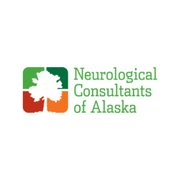4 FAQ About Multiple Sclerosis

Multiple sclerosis (MS) is a common disease that impacts over 2.3 million people worldwide. It requires close treatment and monitoring by a healthcare professional, which is why it’s important to understand specific details if you or a loved one were recently diagnosed. Here are helpful answers to common questions about this disease.
What to Know About Multiple Sclerosis
What is multiple sclerosis?
Multiple sclerosis is a chronic central nervous system disease. It commonly affects the spinal cord, brain, and optic nerve. It’s thought to be related to the immune system misidentifying threats and attacking healthy tissue in these areas, leading to permanent damage. This then affects how these areas of the body communicate with one another.
How does MS develop?

MS usually manifests between ages 20 and 50. It’s more common in women and Caucasians. The exact cause of MS is unknown, though family history, viral infections, and low vitamin D levels are thought to contribute. Smoking cigarettes is also a common contributing factor.
What are common symptoms?
Symptoms vary from patient to patient. Some may experience numbness and weakness on one or more limbs, while others may experience tremor. It can even become difficult to walk. Multiple sclerosis can lead to partial or complete loss of vision, slurred speech, and chronic fatigue depending on which part of the central nervous system it is most affecting. Patients often experience waves of symptoms, with some full receding and others returning alongside new ones.
How is it treated?
Multiple sclerosis has no cure, by healthcare professionals can help control side effects. Corticosteroids, for example, for plasma exchange can increase the body’s ability to combat issues. Medication may also help relapsing symptoms. People with existing symptoms often undergo various forms of physical therapy to sustain or regain mobility and improving diet and reducing stress have shown to have a positive effect on the body.
If you have concerns about multiple sclerosis, contact Neurological Consultants of Alaska, LLC. This Anchorage practice offers treatments for a wide range of neurological and central nervous system issues, including Parkinson’s disease, migraines, and seizures. Learn about their full scope of services or schedule an exam by calling (907) 277-1623 today.
About the Business
Have a question? Ask the experts!
Send your question

